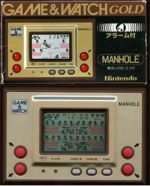I mean, that's a cute idea of something that may happen in the future, to lure people wholly-ensconced in the Apple Silicon ecosystem into buying AAA games that would play across all 3 devices. Does any game cross-license that way now? And mark my words, nothing about this sort of cross-licensing is a technical issue that AS helps solve. Other storefronts are already way ahead of Apple in this sort of multi-platform licensing. As LDM mentions, you have XBO/XBS/PC cross-licensing (important to note on the PC side that that's only through the PC Xbox store, or possibly the MS Store app). But you also have Steam, where buying a game gives you access to the PC version, and (when available) the Mac version, Linux version, and/or SteamOS version. None of this is hindered by architecture, it's entirely a business decision made by the publisher. Simply having similar silicon doesn't do anything to resolve the main barrier to putting AAA games on the iPhone/iPad, which is somehow making them playable with a touchscreen interface.
I find this argument relies on a gross misunderstanding of the challenges in video game development and sales.
Firstly, failing to have one binary that runs on multiple platforms is not a limitation currently for increasing sales. So being able to execute the exact same binary on iPad, iPhone and Mac isn't any sort of advantage.
Saying Apple can kill it in gaming because the same binary for a Mac Pro will also work on an iPhone is like saying my movie will be successful if I release it at AMC theatres, because they use Dolby Vision just like in people's home theatres. The addressable market is huge! Yeah, that's not how any of this works.
The costs in development aren't in compiling the binaries nor is it in distribution for multiple versions of the same platform (so much), so you won't be able to be more profitable or make more sales by only compiling the binary once. Publishers are developing, compiling, packaging, and distributing multiple versions of the game today anyway, because they
already need to target Xbox, PS, Switch, PC (multiple stores that need their own distribution format), and maybe iOS/Android (again, maybe multiple stores that require their own distribution format).
The costs are in creating the 2D and 3D assets, scripting the gametime events and writing the story, play testing, audio asset generation, and other stuff that's platform independent. All this doesn't get cheaper just because you are only targeting one CPU architecture for Apple in addition to all the other ones you have to target anyway because MS, Sony, and Nintendo don't use Apple Silicon.
Games aren't Xbox exclusives or PlayStation exclusives because it costs too much to target the Xbox if you are developing for Playstation, or it costs too much to develop for PlayStation if you are developing for Xbox. When you are talking about $100 million budgets to develop a AAA game, it's virtually free to target other consoles. Games are exclusives to a platform because the developer is owned by MS or Sony, or MS or Sony showed up with a wheelbarrow of money to the developer's offices. Which 1st party developer does Apple own? I think they've only ever paid for one or two exclusives for Apple Arcade... and even that I'm not sure about. They don't do gaming, they don't care about gaming, they don't want to spend money on games, so their platform will never have enough games that gamers care about. That's what I meant by any gaming that happens on iPhone is incidental.
We've had cross-platform games that are almost functionally identical to each other since at least the 6th gen (PS2, Xbox, Gamecube, Dreamcast). And that was across
4 different ISAs (MIPS, x86, PPC, SH-4) during that generation. CPU ISA has been a virtual non-issue for a VERY long time when it comes to developing games, because almost everyone uses middleware, and processor architecture is handled for you by the middleware vendor. Most of the noticeable differences in cross-platform games in the first true cross-platform generation were usually because the GameCube's optical media had way less storage capacity than its competitors: not because 4 different CPU architectures were in use.
But those 4 consoles all used a controller with analog sticks. Now you need to completely redesign your game for iPhone because that is not a given. That takes A LOT more custom development work than checking one extra CPU target when building your game (obviously, yes, I know it's not as easy as that either to target different CPUs). The iPhone/iPad version will ALWAYS be different than the PC/Mac/Linux version, and require a lot more development and testing to make sure it plays ok, because games are designed for controller first, kb/m second, and touchscreen third if at all.
When it comes to coding challenges, using the GPU effectively requires more development time, unless you have a very exotic CPU like the Cell Broadband Engine. But Cell is a once in every few generations types of roadblock to cross-platform development. GPU though, is always different between every console or even gaming PC. iPhone, Mac and iPad all have different enough GPU profiles that you would still need to do some bespoke optimizations for each platform. So the same CPU ISA across tablet, laptop, and smartphone isn't really an advantage if you have to optimize for an iPhone GPU compared to a MacBook Air GPU compared to a Mac Studio GPU anyway. In fact, for this very reason, it can potentially be way harder and more expensive to target for Series S and X than it is to target PlayStation 5 or Switch. The CPU isn't
that far off in power between the two, but the GPU is severely neutered in the lower cost machine.
Number two, you look at 10 million iPhones sold a quarter (or whatever), and you think "whoa, that's a really huge market". But it's really not. What percentage of those users will buy Assassin's Creed on iPhone instead of Xbox or PlayStation? Or even buy it at all, because most of those users don't even play AAA games, and don't want to waste $70 on software they aren't even interested in? Looking at the number of iPhones in the wild, comparing it to the number of consoles, and concluding it could replace consoles is as shortsighted as looking at the number of iPhones in the wild, and deciding that iPhones will replace every grand piano that concert pianists use. The hardware's just not built for that, and the platform owner doesn't even really care to do that. But yeah, there's probably a lot of people who are trying out concepts for a new song using a $5 keyboard app on their iPhone that they may perform in one day in concert, and they may even use their iPhone to perform professionally every once in a while if they are in a pinch. Sales of keyboard apps definitely outstrip sales of grand pianos, but sure as hell no one serious is replacing their grand piano with an iPhone.
Saying that a virtual soft keyboard is not the same as a real piano keyboard, "it's not
real piano", is not elitism, it's just stating the reality for people who play piano enthusiastically. For people who play casually, it's whatever, sure, a virtual keyboard could work for you. But not for a person who is passionate about piano.


